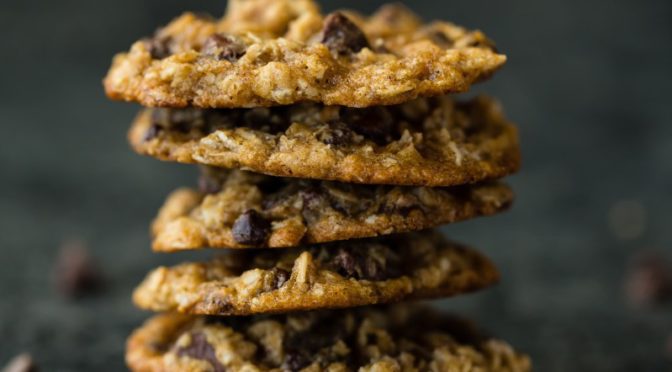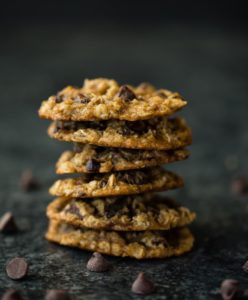
While electric ovens have their pros and cons, gas ovens have a reputation for being less stable and more prone to cooking disasters compared to their electric counterparts. The majority of the time, they work and work well. However, every now and then, you’ll end up with an unevenly baked cake or burned cookies or muffins that just refuse to brown. If you’ve ever had something turn out not quite right in your gas oven, this article’s for you. We’ll help you understand your gas oven and what’s important for consistent baking and successful dishes. We’ll also cover some of the best options for durable, powerful, and easy to use stainless steel ranges and convection ovens.
What are the overall pros and cons of gas ovens compared to electric ovens?
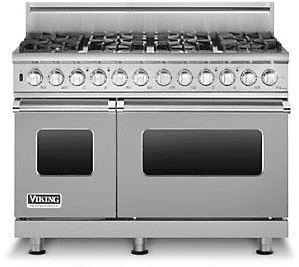
Gas ovens are more efficient than electric ovens because of how they provide heat: they use a main burner at the base of the oven; the flames fueled by the gas radiate heat into the main part of the oven. Electric ovens, in contrast, use heated coils to set and maintain the temperature. The increased efficiency of gas-powered ovens compared to electric ones results in both quicker heat and cheaper bills per hour of operation.
However, fire-based heat is harder to control than that from coils, which means the temperature in a gas oven will have a wider range of fluctuation and result in less even heating. Gas ovens will frequently have hot and (relatively) cold spots; this is why convection fans are so beneficial in gas ovens: they even out oven temperatures and result in more consistent cooking. However, since you’ll always get more control from an electric oven than you will from a gas one, a dual fuel range (one with gas burners and electric ovens like the Viking VDSC5488BSS 48″ range) is the preferred choice for ultimate control of cooking and baking temperatures.
When baking with gas ovens, be sure to rotate your trays
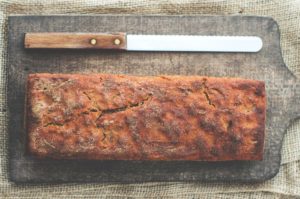
Unless you cook with a convection oven, there’s a good chance you’re going to struggle with hot spots in your gas oven. As a result, you’ll want to keep your trays rotated while you bake; aim to do so at least once over the span of whatever you’re baking. Rotation helps keep your food evenly baked. If you’re baking a quick bread, a cake, or muffins, a 90 degree rotation at the halfway point in baking time will be sufficient. However, if you’re dealing with longer breads or casseroles, you might need multiple rotations for best results. Similarly, if you’re baking cookies and using several trays at once, you’ll also want to move your top trays down and bottom trays up in addition to rotations.
To brown the tops of your foods, choose the highest racks (or use a convection oven)
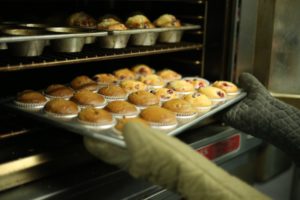
Due to the greater amounts of ambient moisture in gas ovens than electric ovens, they can sometimes drag out the process of browning foods. There are two ways to speed things up: the first is to switch racks; using your highest trays (those closest to the oven’s ceiling) will help you brown foods more quickly. The second is to simply turn on the fan in your convection oven; in addition to creating a more even temperature distribution throughout the oven, the fan will also help dry out the air in your oven, contributing to browning.
Don’t be afraid of a bit of extra heat to crisp your cooking

When cooking, the higher your temperatures, the more quickly your food will cook–to an extent. If you go too far, of course, you’ll burn whatever you’re cooking. But if you increase your temperatures mildly by, say, 25° Fahrenheit, you can dramatically increase your chances of getting crunchy and crispy cookies, roasted potatoes, or whatever else you’re cooking. Keep in mind that doing so will slightly drop your cooking times, so you’ll want to keep a close eye on what you’re cooking as you reach the end of your cooking time; using your nose will also help you decide when your food is ready to come out of the oven.
Which gas ranges provide the most value on the market today for families?
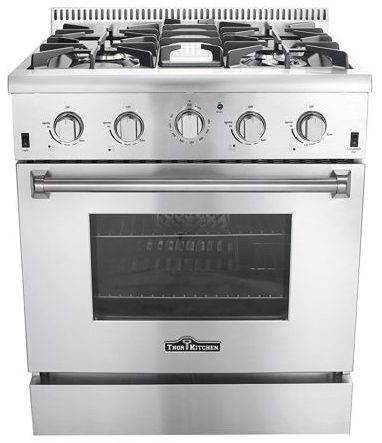
While no gas range will ever be perfect, a general rule of thumb is that professional-grade ranges are worth spending more on for more power, more precise control of that power, and more reliability compared to consumer-priced models. The 30″ size is most common, and perhaps the best value stainless steel professional ranges in that size are the Thor Kitchen HRG3080U 30″ gas range (reviewed here) and the Kucht KRG3080U 30″ gas range (reviewed here). It’s the same range with different branding, but we most often recommend buying it from Kucht over Thor Kitchen if possible simply because Kucht offers better customer service. In either case, it’s a powerful range with a convection oven and broiler and a notable absence of electronics, dramatically increasing its odds of continuing to work for decades.
![]() You can buy the Thor Kitchen HRG3080U 30″ freestanding gas range here on Amazon or buy the Kucht KRG3080U range here instead.
You can buy the Thor Kitchen HRG3080U 30″ freestanding gas range here on Amazon or buy the Kucht KRG3080U range here instead.
![]() Canadians can buy the Thor Kitchen HRG3080U 30″ freestanding gas range here on Amazon or buy the Kucht KRG3080U range, which is cheaper, instead.
Canadians can buy the Thor Kitchen HRG3080U 30″ freestanding gas range here on Amazon or buy the Kucht KRG3080U range, which is cheaper, instead.
 If you find our research on PMC helpful, you can follow our efforts to keep maniacally reviewing home appliances by shopping through our links above. We promise to keep fighting the good fight against every horror children, animals, and grown, yet messy humans can inflict upon a clean home.
If you find our research on PMC helpful, you can follow our efforts to keep maniacally reviewing home appliances by shopping through our links above. We promise to keep fighting the good fight against every horror children, animals, and grown, yet messy humans can inflict upon a clean home.

